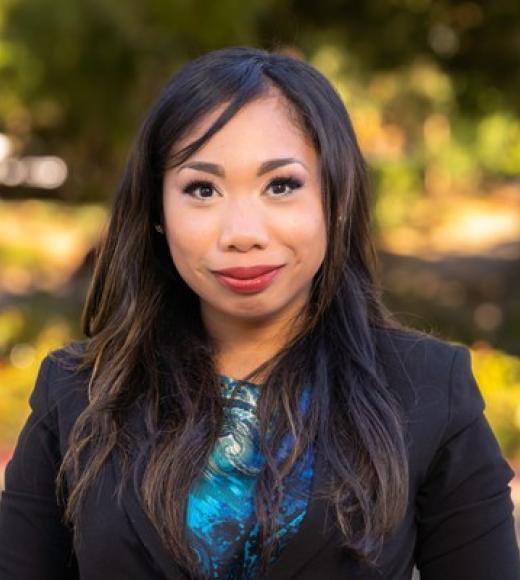
Position Title
Assistant Professor
Education
- 2020 University of Kansas, Doctor of Philosophy, Psychology
- 2016 University of Kansas, Masters of Arts, Psychology
- 2014 California State University Sacramento, Bachelor of Arts – Psychology, Minor: Philosophy
About
Ariel Mosley is an Assistant Professor of Racial Inequality in the Psychology Department at University of California Davis. Her research focuses on how group members navigate their social identities and their worlds, and relate to other groups. In 2020, she received her doctoral degree at the University of Kansas as a member of Dr. Monica Biernat's Stereotyping and Judgement Lab. She conducted her postdoctoral research career at Columbia University in the Social and Moral Cognition Lab with Dr. Larisa Heiphetz.
Professor Mosley received her Bachelor’s degree in Psychology from California State University Sacramento in 2014. As an undergraduate, she also minored in Philosophy, and studied topics of existentialism and Aristotelian virtue ethics. There, she was a Ronald E. McNair Scholar. During this time, she was also was a Sally Cassanova Scholar and Leadership Alliance Scholar, which funded her to work with Dr. John Dovidio at Yale University in the Intergroup Relations Lab on issues of sexism and stigma internalization.
Over the next several years, Professor Mosley’s aim is to conduct basic and applied research that promotes social equality, improves intergroup relations, and cultural understanding. She plans to expand her work on cultural appropriation, social identity, and intersectionality, to further investigate how these psychological processes can facilitate ways to reduce intergroup biases and oppression.
Research Focus
Professor Mosley's work investigates the ways that social categorization and social identity structure judgments of, and responses to, different forms of intergroup inequalities. Her current program of research is driven by the following questions: (a) How do group-based biases and social power influence how group members respond to acts of cultural appropriation, (b) How do intersectional stereotypes affect the categorizations and experiences of diverse individuals, and (c) What are the experiences, adaptations, and resiliencies of marginalized group members who are subjected to discrimination? Combining theoretical perspectives of social cognition, intergroup relations, and racial inequality, Professor Mosley's work uses a variety of research methods such as experimental design, mediation analyses, and meta-analyses to evaluate concerns associated with different forms of inequality - both from the target and the perceiver's perspective.
Publications
Mosley, A.J., Bharj, T., Biernat, M. (2023) Shifting Standards of Sexuality: An Intersectional Account of Men’s Objectification of Black and White Women. Sex Roles. https://doi.org/10.1007/s11199-023-01414-5
Mosley, A.J., Heiphetz Solomon, L. (2023) Google Is Free: Moral Evaluations of Intergroup Curiosity. Personality and Social Psychological Bulletin, 1-12. https://doi.org/10.1177/0146167223118014
Mosley, A.J., Biernat, M., Adams, G. (2023) Sociocultural Engagement in a Colorblind Racism Framework Moderates Perceptions of Cultural Appropriation. Journal of Experimental Social Psychology. 108, 104487, 1-18. https://doi.org/10.1016/j.jesp.2023.104487
Mosley, A.J., Heiphetz, L., Biernat, M., White, M.W. (2023) Perceptions of Harm and Benefit Predict Judgements of Cultural Appropriation. Social Psychological and Personality Science. https://doi.org/10.1177/19485506231162401
Mosley, A.J., Heiphetz, L. (2021). Integrating Social and Moral Psychology to Reduce Inequality. Psychological Inquiry, 323:3, 173-177. https://doi.org/10.1080/1047840X.2021.1971445
Mosley, A.J., Biernat, M. (2021). The New Identity Theft: Perceptions of cultural appropriation in intergroup contexts. Journal of Personality and Social Psychology: Interpersonal Relations and Group Processes, 121 (2), 308-331. https://doi.org/10.1037/pspi00000327.
Mosley, A.J., Branscombe, N.R. (2020). Benefit-Finding Improves Well-Being Among Women Who Have Experienced Gender Discrimination. Sex Roles, 1-44. Advanced online publication. https://doi.org/10.1007/s11199-020-01175.
Keefer, L., Mosley, A.J., T.J., Landau, M.J. (2017) Fetishism and Gender. In K. L. Nadal’s (Ed.) The SAGE Encyclopedia of Psychology and Gender, 578-580. SAGE Publications, Inc., Thousand Oaks, CA. https://doi.org/10.4135/8781483384269.n.
Teaching
Professor Mosley has taught courses on Social Psychology, Methods, The Psychology of Law, and the Science of Cultural Appropriation and Racism. Professor Mosley also frequently engages in communicating science to the broader community, as she is committed to making science, and particularly topics of intergroup relations and social cognition, more accessible to the public.
Awards
Since 2022, Professor Mosley has been a University of California Davis Center for the Advancement of Multicultural Perspective on Social Science, Art and Humanities Faculty Scholar. In 2016, she received the National Science Foundation Graduate Research Fellowship for a project titled, "A Meaning-Making Model for Reducing Stigma Internalization in Disadvantaged Groups." In 2018, she received the National Science Foundation Graduate Opportunities Worldwide Fellowship to conduct research in Clermont Ferrand, France, for a project titled, "An Ideological Approach to Understanding Symbolic Threat."
Her work has received awards from international societies and private foundations, such as the International Society of Political Psychology (2022), The Society for Psychological Study of Social Issues (2020/2017), The Society for the Study of Peace, Conflict, & Violence (2020), The Society for Social and Personality Psychology (2020/2019), and The Ernest Becker Foundation (2019). Prior to that, Professor Mosley was a Yale Research Fellow (2012-2013), a California Predoctoral Fellow (2013-2014), and a Ronald E McNair Post Fellow (2011-2012). She has also received honorable mentions from the National Academies of Sciences, Engineering, and Medicine Ford Foundation (2016).
